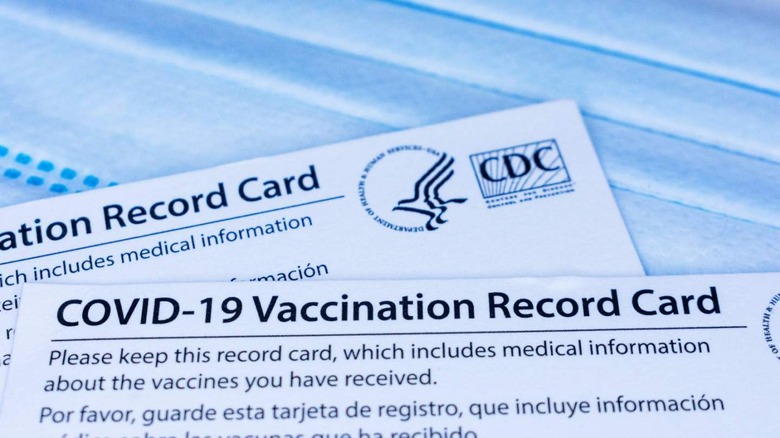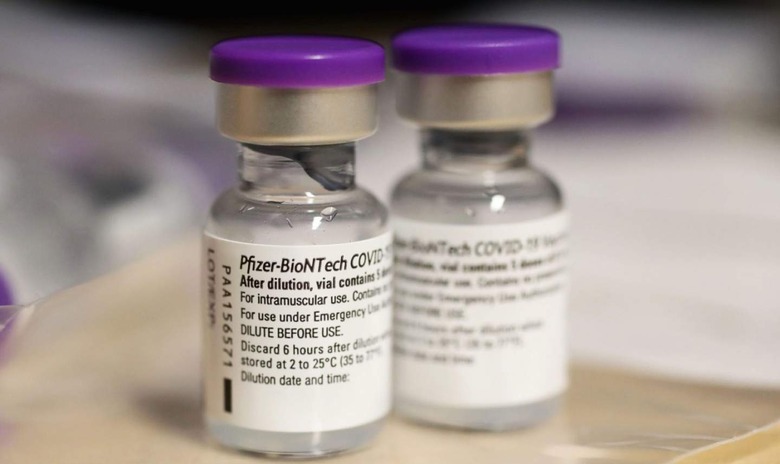CDC Advisers Recommend Pfizer, Moderna Vaccines Over Johnson & Johnson
When possible, advisers with the US Centers for Disease Control and Prevention say the public should choose Pfizer or Moderna's COVID-19 vaccines over the Johnson & Johnson version. The agency has published a lengthy presentation from the Advisory Committee on Immunization Practices (ACIP) meeting held on December 16 that includes a few dozen pages on the current data, risk-benefit analysis, and more. Among other things, the presentation includes details on a very rare potential side effect linked to nine deaths.
CDC advisers' latest recommendation
During their meeting today, the ACIP advisers recommended that the Pfizer and Moderan COVID-19 mRNA vaccines should be given preference over Johnson & Johnson's viral vector vaccine. The recommendation is for those in the authorized age groups, of course, and covers cases in which the mRNA vaccines are an option for the person seeking inoculation.
The advisory group notes that the J&J COVID-19 vaccine may still be offered to those in the authorized age groups, assuming there's a reason they can't get the mRNA series, such as the latter being unavailable or a contraindication like an allergy. In addition, the CDC's panel recommended that J&J's COVID-19 vaccine not be given as a booster shot except, potentially, in cases where the mRNA options aren't available or the recipient has a contraindication to them, such as the aforementioned allergy issue.

The experts note that viral vector vaccine recipients should also give informed consent for the shot, meaning they've been advised about the potential risk of vaccine-induced immune thrombotic thrombocytopenia (VITT). This very rare potential side effect involves the formation of blood clots and a decrease in blood platelet levels (via ACC).
The presentation includes data on this rare complication, revealing a total of 53 cases of thrombosis with thrombocytopenia syndrome that were developed after the patient received the Janssen shot. That figure was out of the overall 3.83 million doses administered as of August 31, 2021.
As of December 2, 2021, a total of nine deaths related to this condition were reported, working out to a rate of 0.57 per million doses. The complication and deaths were most common in female recipients in the 30 to 39 age group, followed by the 40 to 49 age group.
The updated recommendation follows the CDC's decision to pause administration of the J&J COVID-19 vaccine earlier this summer following reports of blood clots and a decrease in blood platelet levels. The risk-benefit analysis at the time, however, led to the CDC lifting the restriction.
Difference between mRNA and viral vector vaccines
Three COVID-19 vaccines are authorized for use in the United States: two mRNA vaccines from Pfizer and Moderna, as well as a viral vector vaccine from Johnson & Johnson. The mRNA vaccines use messenger RNA to "teach" the recipient's body to mount an immune system response against SARS-CoV-2 (via CDC). Both Pfizer and Modern's mRNA vaccines are given with two primary doses, plus there's a smaller booster dose available for eligible people.
In contrast, the CDC explains that a viral vector vaccine uses a tweaked version of a harmless virus to, in this case, produce part of the spike protein leading to antibody production. The body's immune system responds as if the vector virus is an infection, essentially teaching the immune system how to properly fight the SARS-CoV-2 virus to help protect against an actual infection.
The data available at this point show that Pfizer and Moderna's mRNA vaccines are more effective at protecting against severe COVID-19 compared to Johnson & Johnson's vaccine (via Yale). The World Health Organization points out, however, that any authorized vaccine option is better than not getting vaccinated at all, as unvaccinated individuals are most at risk of being hospitalized and dying from COVID-19.


